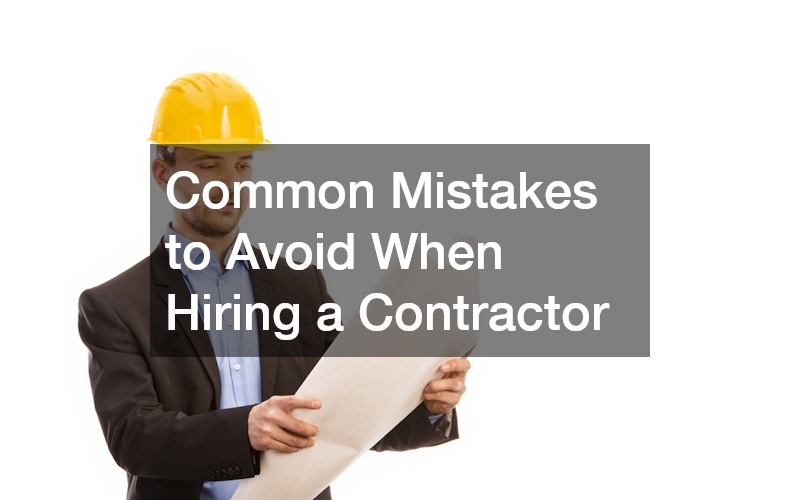Outdoor living spaces are an extension of your home, offering both beauty and functionality. Whether you’re adding a paver pool deck, constructing a retaining wall, or planning a custom enclosed screened porch, hiring the right professional is essential to ensure the quality and longevity of your investment. Choosing a reputable hardscaping contractor involves more than a simple Google search—it demands careful planning, research, and consideration. This article explores the key factors that lead to successful collaborations with hardscaping contractors and offers guidance on how to assess credentials, contracts, and the final result.
What is a Hardscaping Contractor?

Definition and Role
A hardscaping contractor specializes in the design, construction, and maintenance of non-living features in your outdoor space. Their work includes building patios, stone walkways, paver pool decks, outdoor kitchens, and decorative walls. They are distinct from general contractors due to their expertise in exterior hard materials and site-specific requirements.
Differentiation from Landscaping
While landscaping focuses on living elements like plants, grass, and garden beds, hardscaping deals with permanent, structural features. A hardscaping contractor may collaborate with a landscape design specialist to achieve a cohesive look, but their primary role is to implement solid, weather-resistant installations that define the layout and utility of the space.
Key Skills and Expertise
The best hardscaping contractors possess a balance of artistry and engineering know-how. They understand material selection, drainage, grading, and load-bearing requirements. Often working closely with an excavating company during the early stages, they ensure that land clearing and site prep are executed correctly to provide a stable foundation for structures like patios and retaining walls.
Services Offered
Typical services include constructing retaining walls, installing paver patios, fire pits, outdoor kitchens, and walkways. Some also specialize in integrating sound proof glass doors into outdoor living areas to create seamless transitions between indoor and outdoor spaces. Others provide full-scale site preparation through land clearing and collaboration with a tree company or tree remover to ensure safe, buildable land.
Industry Standards
Professionals follow building codes and often hold certifications from organizations like the Interlocking Concrete Pavement Institute. This guarantees compliance with industry best practices and ensures the final product is both functional and durable. A quality retaining wall contractor, for example, should always ensure proper drainage and foundational support behind their structures.
Why Hire a Professional Hardscaping Contractor?
Benefits of Professional Work
When you hire a hardscaping professional, you gain access to expert-level craftsmanship and peace of mind. Experienced contractors provide innovative solutions, such as integrating enclosed screened porches into your patio layout or connecting your hardscape with thoughtful landscape design elements for maximum visual impact.
Cost-Effectiveness
While the upfront cost may be higher than a DIY project, professionals avoid costly errors and rework. They plan properly, source quality materials, and deliver long-lasting results that reduce future maintenance costs. A well-installed paver pool deck, for instance, will resist shifting, cracking, and water damage far longer than one installed by an amateur.
Time Efficiency
Time is a significant asset. Professionals manage timelines efficiently, ensuring that everything from land clearing to final material sealing is completed promptly. They also coordinate with other professionals, like an excavating company or tree service to handle site preparation swiftly and safely.
Access to Resources
Reputable contractors have established supplier relationships and access to top-grade materials and equipment. Whether you’re building a complex multi-tier patio or adding modern sound proof glass doors to your outdoor kitchen area, they can obtain the right tools and products at better prices than most homeowners.
Enhanced Aesthetic and Durability
When aesthetics meet durability, the result is a beautifully crafted outdoor area that adds significant value to your home. Professionals combine knowledge of materials with experience in design principles to ensure that each element—from retaining walls to seating areas—is cohesive and structurally sound.
How to Find a Reputable Hardscaping Contractor?
Researching Contractors
Start by researching contractors online and locally. Look for businesses that specialize in services you need, such as a retaining wall contractor or companies known for installing paver pool decks. Evaluate their websites, image galleries, and service descriptions to get a sense of their capabilities.
Checking Credentials and Licenses
Licensing requirements vary by state and municipality, so verify that your contractor meets local legal standards. Also check for bonding and insurance. Contractors who perform land clearing or work with an excavating company should have up-to-date liability coverage to protect against on-site accidents.
Recommendations and Reviews
Referrals from friends and family are often the most reliable sources. Additionally, read online reviews for insights into punctuality, professionalism, and quality. A tree service that also handles land clearing, for instance, should have consistent reviews that reflect both reliability and safety.
Industry Affiliations
Memberships in professional organizations indicate a commitment to continuous learning and ethical practices. Contractors involved in specialized services like installing enclosed screened porches or working with a tree remover should ideally be associated with credible industry bodies.
Online Resources and Directories
Use online platforms like Houzz, Angi, and HomeAdvisor to find vetted contractors. These sites offer photo portfolios, customer ratings, and pricing estimates, giving you a well-rounded picture of what each contractor can offer.
What Questions to Ask a Potential Hardscaping Contractor?

Experience and Past Projects
Ask for a portfolio of past projects that resemble your planned work. If you’re building a multi-level paver pool deck or integrating hardscape into a broader landscape design, it’s crucial to see similar examples of successfully completed projects.
Project Timeline
Ask for an estimated start and finish date. Be sure to discuss potential delays such as bad weather or scheduling conflicts with other professionals like a tree company or excavating team.
Insurance and Liability
Verify that they have general liability and workers’ compensation insurance. Especially for projects involving heavy machinery, land clearing, or elevated retaining walls, proper coverage protects both you and the workers.
Contract Details
Request a comprehensive written contract. Make sure it includes all details such as scope of work, materials, payment terms, and warranty coverage. Don’t rely on verbal agreements for any aspect of the job.
Client References
A trustworthy contractor will provide references from past clients. Speaking to homeowners who had similar work—such as installing sound proof glass doors or collaborating with a tree remover—can give you valuable insights.
What to Expect from the First Consultation?
Initial Project Discussion
During the first meeting, the contractor will ask about your vision, usage goals, and stylistic preferences. If you’re interested in integrating hardscaping into your overall landscape design, this is the ideal time to bring it up.
Project Assessment and Site Visit
A reputable contractor will visit your property to evaluate conditions like slope, soil composition, drainage, and access. They might coordinate with an excavating company if major land reshaping or foundation work is needed.
Design Ideas and Concepts
You’ll discuss various options, such as adding an enclosed screened porch for bug-free relaxation or incorporating a sound proof glass door system for noise control and privacy. Concept drawings or 3D models may be offered.
Budgeting and Cost Estimates
Expect an itemized estimate that outlines labor, materials, equipment rental, and subcontractor costs. Any land clearing, tree service, or excavation work will typically be noted as a separate line item.
Finalizing Scope and Plans
Once the vision is agreed upon, the contractor will draft a final scope of work that includes materials, designs, timelines, and warranty coverage. This document will guide the project moving forward.
What Should a Contract Include?
Project Description
Ensure the contract clearly describes all elements, from the size and style of the paver pool deck to integration with existing landscape design features.
Material Specifications
List all materials, including type, color, and manufacturer. For projects using stone, brick, or custom features like sound proof glass doors, these details are essential for accuracy.
Payment Schedule and Terms
Set clear terms regarding deposit, installment payments, and final payment upon completion. Tie payments to project milestones, such as after land clearing or post-paver installation.
Timeline and Milestones
Include projected start and end dates, along with key milestones like tree removal, site excavation, or retaining wall construction.
Warranty and Guarantees
A professional contractor will stand behind their work with written warranties covering labor and materials. Ensure any sub-contracted services, such as those from a tree company or excavating company, are also included.
How to Assess the Quality of Work?

Inspection of Completed Projects
Visit past job sites if possible. This helps you assess their craftsmanship, especially on complex features like multi-layer retaining walls or enclosed screened porches.
Attention to Detail
Look for well-aligned pavers, clean joint lines, and seamless transitions between hardscape and softscape. Small details reflect overall quality and professionalism.
Materials Used
Ask for a list of materials and check for recognized brands and quality ratings. The longevity of your paver pool deck or patio heavily depends on this choice.
Compliance with Industry Standards
A top-tier contractor adheres to industry best practices in drainage, foundation compaction, and finishing. They work closely with experts like excavating companies and tree removers to meet structural requirements.
Post-Completion Service
Reliable contractors offer post-completion services, such as maintenance guidance or minor repairs, to ensure continued satisfaction.
How to Handle Issues or Disputes?
Reviewing the Contract
Start by revisiting your contract. Clear documentation can quickly resolve misunderstandings about scope, cost, or timelines.
Open Communication
Maintain open lines of communication with the contractor. Promptly express concerns and seek clarifications to prevent escalation.
Working with a Mediator
If informal resolution fails, consider involving a mediator experienced in construction or contracting disputes.
Formal Complaint Processes
File complaints with licensing boards or professional associations if ethical or legal standards are violated.
Legal Options
As a last resort, consult a construction attorney to review your rights and potential legal remedies under the contract terms.
How to Maintain the Hardscaped Area?
Regular Inspection and Cleaning
Inspect surfaces for cracks, stains, or uneven settling. Routine cleaning extends the life and look of your patio or walkway.
Treatment and Sealing
Apply sealants annually to preserve stone color and prevent water infiltration, particularly in paver pool decks and stone walls.
Repairing Damages
Address small cracks or shifts immediately to prevent larger issues. Keep the contact info of your original contractor or a reliable tree service or excavator if needed.
Winter Preparations
Clear leaves, apply protective coverings, and avoid using salt-based deicers that can damage pavers or concrete.
Long-Term Maintenance Plans
Set a maintenance schedule, and consider hiring professionals for seasonal care or major touch-ups. Contractors often offer maintenance services for enclosed screened porches or large retaining wall structures.
Common Mistakes to Avoid When Hiring a Contractor

Skipping the Research
Never choose a contractor based on price or proximity alone. Always vet their credentials, past work, and references.
Overlooking the Contract Details
Verbal agreements are risky. Insist on a detailed written contract before any land clearing or construction begins.
Ignoring Red Flags
Poor communication, rushed estimates, or unwillingness to share references should raise concerns.
Baseless Cost-Cutting
Don’t cut corners on materials or labor just to save money. Quality work pays for itself in durability and resale value.
Rushing the Decision
Take time to compare estimates, review credentials, and feel confident in your choice. A rushed decision can lead to regret and costly corrections.
Conclusion
Choosing a reputable hardscaping contractor is a multi-step process that requires diligence, planning, and foresight. From securing proper land clearing to integrating beautiful design features like enclosed screened porches and paver pool decks, every decision matters. The right contractor will not only bring your vision to life but also deliver a functional and enduring outdoor space that adds value and enjoyment to your home. Take the time to choose wisely, and your hardscaped space will be an investment that stands the test of time.



